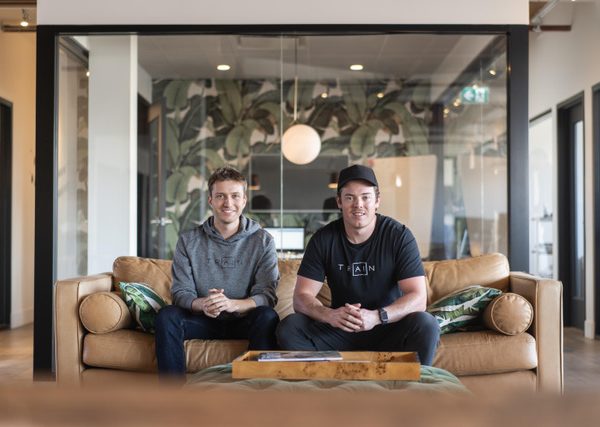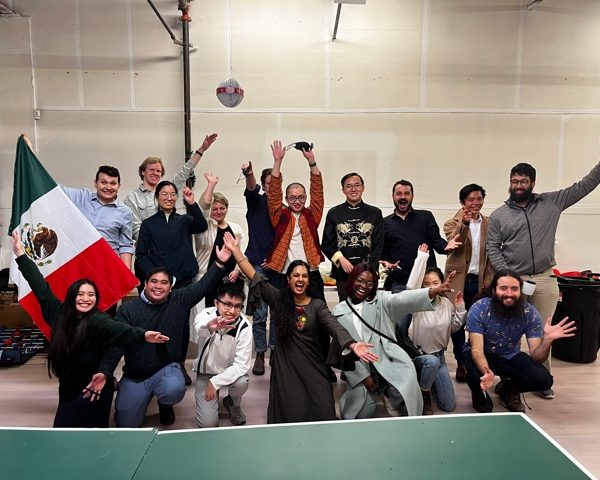AI-powered app TRAIN fitness took 2nd place in the 2021 Competition. Since then, they’ve hit 10,000 downloads, raised $540,000 USD pre-seed funding, and are quickly expanding their library of trackable movements into sports like yoga and kickboxing. Interview with Antoine Neidecker, Co-Founder.
Can you explain a bit about how your app is able to detect movements so accurately, just by tracking your wrist?
The app uses AI to track recognized exercises and count reps. Before training the AI, we have to go through a data collection process.
Then, after recording the necessary data, with many different people performing different exercises, we train Artificial Intelligence models to recognise exercises and count reps.
Everyone’s movements or the way they exercise must be slightly different–how does it account for that?
That’s part of it. We find people who are diverse–across gender, size, weight, height–so we have a diverse set of beta. Then, regardless of who you are, we are able to recognize the exercises that you do, because we’ve had people who fit a similar body type do the exercise before.
Were you inspired to start TRAIN based on your own frustrations with fitness tracking?
Totally. Andrew, my Co-Founder, is a big athlete–he ran marathons and triathlons in highschool. He loved the process of training cardio, because tracking his workouts is easy. You can see your splits, how fast you run, how much you should be training, what you should be doing–many analytics are tied to the workout.
However, with gym workouts, all of that is lost. And there were no big tech improvements in tracking, ever since the pen and notebook were invented. That’s why we started collaborating on TRAIN two years ago.
When you entered the Competition, you hadn’t launched your app yet–did you think that might be a barrier?
We did have a few judges who were skeptical about the app. Some people didn’t believe it works, even with demos. Being able to launch before the competition starts is definitely a big advantage.
If you’re not able to launch, doing extensive demos of your product is the way to go. We were in beta for a long time before the competition started–we had 150 users using the app every day and telling us what they thought. This enabled us to iteratively build our app over several months and have something presentable for a demo.
You did very well–congrats on winning second place! How did you use your prize money?
Thank you! Everything went into development–we’re adding 50 exercises in a couple weeks, and that’s actually thanks to the prize money. We put it towards data collection and the development of the Artificial Intelligence, and it was a huge help for that.
Besides the prize, what was the most impactful part of going through the competition?
The mentorship was valuable. We’re still in contact with our mentors–they’ve helped us so much, both on the advice side of things, but also in introducing us to people. We even went to the gym with one of our mentors–we worked out with him, and he gave us advice on what we could improve on, and told us what he loved about the app.
The mentorship was a big benefit of the competition, the prize money was also great, and so is going through the process of building a case for your company and putting yourself through the mindset of building your business plan.
Answering the tough questions–that was valuable for us as well. When you’re building a company it’s easy to get tunnel vision and focus on the questions that you’re comfortable answering. And you can fall into the trap of avoiding the ones that make you uncomfortable. Forcing yourself to go through this competition and really drilling down into those uncomfortable questions has a ton of value.
What was the best piece of advice received from your mentors?
I would say that we initially built our company around the problem. We had the tech, and we were solving this issue of tracking workouts, but the business model itself wasn’t very clear.
We could have gone the B2B route with personal trainers and gyms or take a B2C route with users. Talking through that with our mentors made it clear that B2C was the harder route but also more realistic in terms of our goals.
Being clear on the route was beneficial for us. It saved us a lot of time–going after both would have taken more effort and we would have been less focused.
Any advice for this year’s competitors?
Don’t be afraid to reach out with your mentors and be in close contact with them. Make sure that you are the one steering the conversation so they’re there to help you, that they’re not just telling you what you should be doing.
It’s important to also make sure you know your weak spots and that you expose them to your mentors so that they can really help you.
You’ve recently raised pre-seed funding! Congrats. What does this mean for TRAIN?
We’re adding crossfit and machine exercises to our app. We want to master the gym experience, then after that we’ll be going into yoga, boxing, and pilates in six months from now. We want to track your fitness experience across several sports.
The NVBC competition helped us raise the money to do this and gave us credibility. It was a big selling point for us.
The credibility that comes with winning the competition–it shows that we’re the real deal. And that we’re not the only ones who think this is a great idea.
2022 competition open for entries
Want to enter the 2022 New Ventures BC Competition? Entries are open until April 11, 2022.

